Issue/Volume: 23/02

In September, Solidaridad’s efforts in the textile and palm oil sectors were well-received at the Everything About Water Expo and the Annual General Meeting and Awards Function of the Solvent Extractors' Association of India, respectively. The month also saw the completion of four years of the Good Farming-Good Food-Good Health programme, and the year-long ‘Sustainable Associates’ initiative; apart from the multiple efforts to mobilize farmers across regions and commodities, to the signing of an MoU to upskill farmers in regenerative agricultural practices.
Happy reading!

Solidaridad’s Interventions in the Textile Sector Garner Acclaim at Expo
Solidaridad participated in the Everything About Water Expo, held in New Delhi between 10 and 12 September, 2024.
At the expo, we highlighted our innovative solutions aimed at significantly reducing water usage, minimizing chemical consumption, and optimizing energy efficiency in textile manufacturing, particularly in the Panipat cluster. We also showcased our efforts to enhance the performance of effluent treatment plants (ETPs) and improve occupational health and safety (OHS) for workers. These interventions have helped transform practices in the Panipat cluster.
Our solutions attracted the attention of a diverse audience around the world, and opened up avenues for future collaboration.

‘Sustainable Associates’ Assist Leather Team to Set Up Green Interventions for Kolkata Tanneries
Solidaridad recently concluded a year-long initiative in which 10 students from the Government College of Engineering and Leather Technology (GCELT) in Kolkata worked closely with the leather team as ‘Sustainable Associates’ to establish sustainable practices in tanneries.
The associates helped in project activities ranging from organizing and conducting Training of Trainers sessions on different green tanning technologies to overseeing capacity-building activities on different aspects of occupational health and safety. The students also regularly visited the tanneries to check the status of interventions implemented, and even scale them up at the cluster level.
By the end of their participation, the students, by compiling feedback from tanneries on the various activities, were able to help the project team implement a periodic, systemic approach to green initiatives in 126 tanneries in the Kolkata Leather Complex.

Solidaridad Shines Spotlight on Sustainability in Vegetable Oil Supply Chains
Solidaridad showcased its innovative approaches to ensuring sustainability in the vegetable oil supply chains at the 2024 Annual General Meeting and Awards Function of the Solvent Extractors' Association of India in Mumbai, India.
Dr.Suresh Motwani, Regional Head—Vegetable Oil, Solidaridad, delivered a presentation on "Solidaridad's Package of Smart Agri Technology Solutions and Tools". He also highlighted the India Palm Oil Sustainability (IPOS) Framework, a vital initiative for enhancing sustainability within the palm oil industry in India.
The event—attended by key representatives from major oil industries, policymakers, sustainability experts, and innovators—provided a crucial platform for stakeholders to exchange insights and explore sustainable growth strategies.

The Good Farming-Good Food-Good Health Programme Celebrates Four Years of Impact
Solidaridad's Good Farming-Good Food-Good Health Programme marked a major milestone with a special event in Bhopal, Madhya Pradesh, on 11 September titled “Celebrating Four Years of Nutritional Impact: Building Future Pathways Together”. Nirmala Bhuria, the State Minister of Women & Child Development, Madhya Pradesh, was the special guest of the event.
Dr.Suresh Motwani, Programme Coordinator, shared inspiring highlights from the programme's 4-year journey, showcasing how it has empowered rural communities, and led to better nutrition outcomes, healthier lifestyles, and sustainable farming practices.
The event witnessed the participation of Sufiyah Faruqui Wali, Commissioner of the Directorate of Women and Child Development, and officials of several crucial government partners such as the PM-POSHAN, ICAR-Central Institute of Agricultural Engineering, the Department of Health, and the National Rural Livelihood Mission.

Farmers’ Convention and Agri Exhibition Sees Participation of Farmers’ Groups and Government Stakeholders
A farmers’ convention and agri exhibition was organized in Saoner block, Nagpur district, Maharashtra, in early September. Farmers’ groups set up stalls selling inputs such as vermicompost, bio-inputs and produce such as organic fruits, while other stakeholders such as agriculture officials, local governance bodies, and private players that provide tools such as tractors and drones, among others, also showcased their activities.
Solidaridad’s team working with the cotton project in Maharashtra also set up a stall where FPOs and SHGs associated with us displayed and sold inputs such as nimboli ark, dashaparni ark, vermicompost, blue and yellow sticky traps. The Solidaridad team and farmers associated with us interacted with guests, explaining the interventions of the different programmes implemented, such as regenagri, Smart Agri, the Organic Cotton Programme, the Water Efficiency Programme, and others.

Farmers’ Gathering in Madhya Pradesh Sparks Conversations and Collaborations on Watershed Management
The collaboration between the Rajiv Gandhi Mission for Watershed Management (RGMWM) and Solidaridad marks a crucial step in advancing sustainable agriculture and watershed management in Madhya Pradesh. It also aligns with the Watershed Development Component – Pradhan Mantri Krishi Sinchayi Yojna 2.0 (WDC–PMKSY 2.0).
The partnership aims to enhance water resource management, improve agricultural productivity, and build climate resilience. Key goals include forming water user groups (WUGs), optimizing water use, and empowering farmer organizations to support long-term sustainability for the region’s farming communities.
In line with these efforts, a farmer mobilization event was held in Mandsaur on 6 September. The event was attended by Hardeep Singh Dang, MLA of Sitamau–Suwasara, along with representatives from various government departments. The event aimed to strengthen efforts towards sustainable water management, improve agricultural productivity in the region and facilitate the formation of farmers’ producer organizations.

Steps to Ensure Safe and Responsible Handling of Chemicals Discussed in Leather Workshop
Solidaridad, in collaboration with STAHL India, conducted a one-day workshop at Solidaridad’s Centre of Excellence in the Kanpur-Unnao leather cluster in September. Attended by 25 representatives of different tanneries, the workshop instructed the participants on the safe and responsible handling of chemicals.
The attendees received insights on crucial topics such as safe chemical handling procedures, preventive measures to address hazards, and the maintenance of a Master Safety Data Sheet. As a part of the Pathways to Prosperity initiative, the workshop promoted decent work conditions, underscoring the importance of adhering to safety protocols. At the end of the collaborative event, certificates were distributed to all participants.

Analyzing the Role of Tuber Crops in Ensuring Nutritional Security
Tuber crops was the topic of discussion at an orientation programme on crop diversification recently held in Haladibasanta village in Cuttack district, Odisha. Dr. G. Byju, Director, ICAR-Central Tuber Crops Research Institute (CTCRI) was the chief guest, while Dr. K. Laxminarayan, (Head -Regional Centre, CTCRI, Bhubaneswar), and Dr. M. Nedunchezian (Principal Scientist) also attended the event.
Over 100 small farmers from different gram panchayats participated in the programme. The programme touched upon many different aspects: the role of tuber crops in enhancing nutritional security among women and adolescent girls, its potential for income diversification and better returns, the value-addition quotient of tuber crops, its health values, and its contribution to reducing water stress in agriculture. The efforts to popularize tuber crop cultivation in Odisha were well appreciated by CTCRI.

Solidaridad–Junagadh Agricultural University Partnership Seeks to Upskill Farmers in Regenerative Agricultural Practices
To promote sustainable agricultural production, the Solidaridad Regional Expertise Centre recently signed an MoU with the Junagadh Agricultural University (JAU). The event was attended by several senior representatives from JAU and Solidaridad.
Under this MoU, signed for a two-year duration, JAU will provide technical support for farmer-led training and capacity-building programmes in 27 villages working with the Gram Samruddhi Project in Dwarka and Jamnagar districts, on various aspects of soil health, regenerative agriculture methods and farmers capacity building. The two organizations will also collaborate to disseminate technical knowledge, and facilitate certifications to scale up the adoption and adaptation of efficient, regenerative agricultural practices.

Yavatmal Farmers Receive Lessons on Alternative Livelihood Options
Climate change poses a major threat to farmers in the Vidarbha region, where agriculture is mostly rainfed. To support them economically and to provide them with knowledge on alternate sources, Solidaridad conducted a training session on green job creation and health and nutrition for farmers in Kalamb block, Yavatmal district, in early September. Solidaridad staff guided farmers on supplementary livelihood options such as vermiculture preparation, mushroom cultivation, as well as the preparation and selling of agri inputs such as neem ark and dashaparni ark.

Mobilization Sessions Guide Farmers on Integrated Pest and Nutrient Management
Farmers’ mobilization is an integral part of Solidaridad’s activities. The mobilization occurs through farmer field school meetings, street corner meetings, training sessions at resource centres, offline shetishalas and exposure visits.
This month, four such sessions were conducted in Maharashtra – at Ubali village, Susundri village, and the Burujwada Resource Training Centre (all in Nagpur district) and at Yeranwadi village (in Wardha district). These sessions were designed to guide farmers on integrated nutrient and pest management in cotton cultivation. Farmers received useful insights on recognizing useful and harmful insects, the use of yellow and blue sticky traps, irrigation scheduling, the inputs to be provided to cotton during various stages of its growth, and the measures to be taken to treat conditions such as root rot.

Vermicomposting: A Pathway to Prosperity
Nilesh Patidar, a young farmer from Kajli village in Rajasthan’s Pratapgarh district, was following in his father’s footsteps by practising traditional agriculture on their 2.5-bigha-large (around 0.63 ha) garlic field. A chance encounter with the Smart Agri Project 15 months ago introduced Nilesh and his father to vermicomposting.
Where previously they sprayed raw cow dung on the field, a process that was costly and labour-intensive, the father and son now apply vermicompost, sourced from their six buffaloes, on the farm, with Solidaridad’s support. Vermicomposting has significantly raised the nutritional value of the crop. Moreover, it has eliminated the risk of white grub insects, a major menace when applying cow dung.
This year, Nilesh harvested as much as 40–45 quintals of garlic – a yield he had never reaped before. Encouraged by this success, they scaled up their vermicompost production from just one bag to 50 quintals. “Vermicompost is economical even if you buy it from the market. Farmyard manure costs ₹7,000–₹8,000 per trolley, while vermicompost only costs ₹1,000 per quintal,” says Nilesh. His transformation as a farmer is a testament to how small, thoughtful changes in farming practices can lead to big rewards.
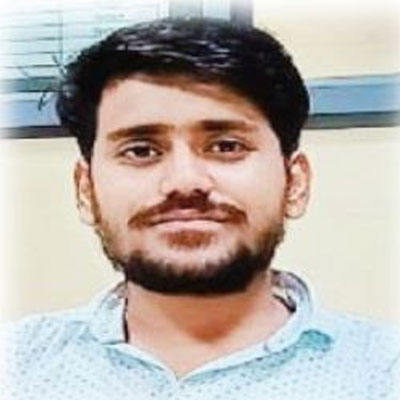
Sahibe Alam, joined us on 2 September as Field Coordinator-MSME (Textiles) at Panipat. He comes with more than two years of work experience in the textile sector. He has worked in textile processing, fabric dyeing and production. Previously, he was working with Centex International Pvt. Ltd. as Shift Officer. He has completed his Diploma in Textile Chemistry from Government Polytechnic, Kanpur.
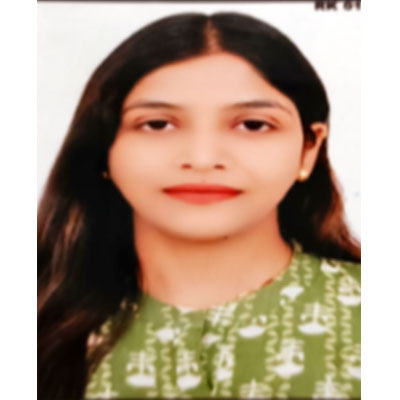
Madhuri Ahirwar, joined us on 6 September in our EU funded project at Bhopal as Field Coordinator. She comes with an experience in programme management, data management, field support operations, documentation and conducting farmers training sessions. She has completed her B.Sc. From B U University, Bhopal.
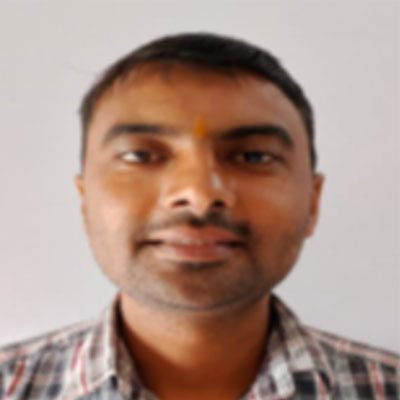
Unkar Lal Mehta, joined us on 6 September in our EU funded project at Bhopal as Field Coordinator. He comes with experience in programme management, reporting, documentation, community mobilization, data collection and management. He has completed his Post Graduate Diploma in Rural Planning & Management with specialization in Rural Enterprises Management and Entrepreneurship from the School of Rural Management, Ratlam. He was previously working with Educate Girls as an Impact Assistant.
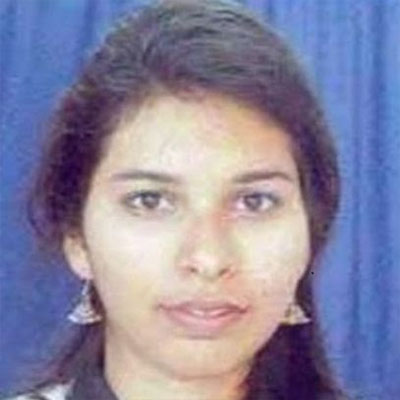
Divya Kumari
Field Coordinator-MSME (Textiles)
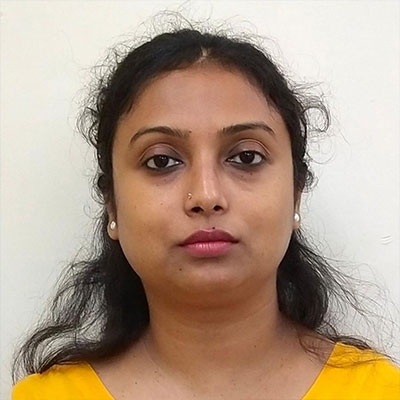
Amrita Dhar
Field Coordinator, Kolkata
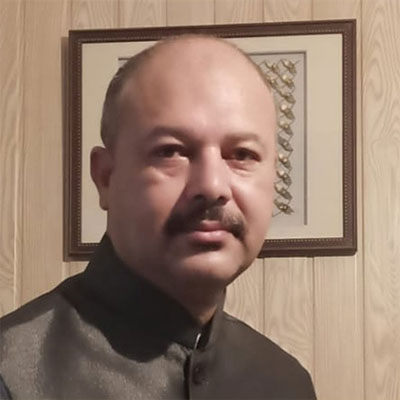
Rohin D’Souza
Senior Programme Manager-Tea
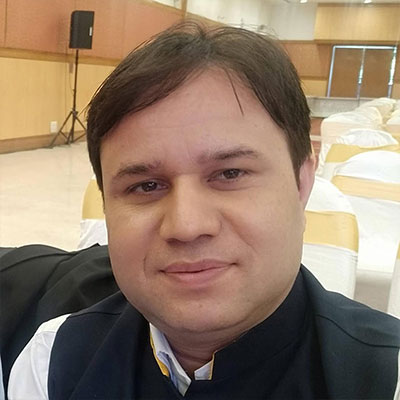
Himanshu Bais
Senior Manager-Soy and Palm Oil